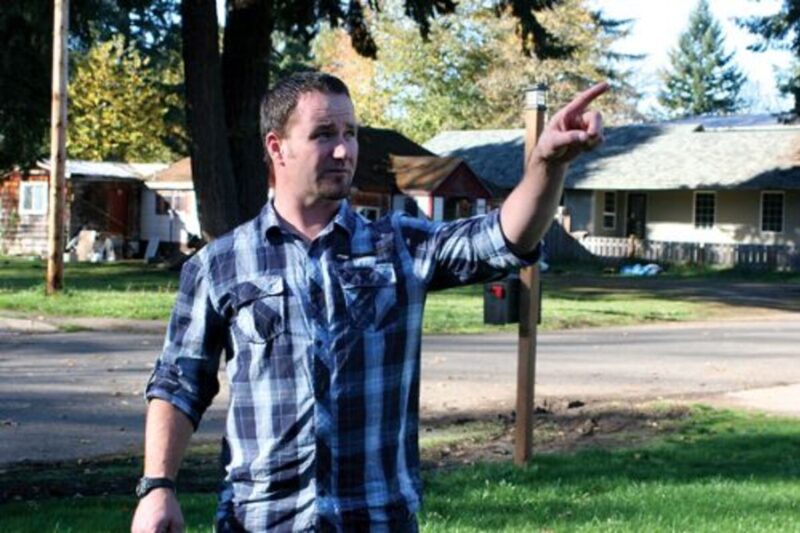Sean C. Morgan
Linn County is moving forward with an accelerated foreclosure on a property located at the intersection of 11th and Poplar streets that will help rid the neighborhood of ongoing disruptions.
Neighbors are hoping it’s a problem solved.
Payments of property taxes for the property at 1650 11th Ave., whose owner, Dennis Duncan, is deceased, have fallen five years behind.
“We are going to go ahead with the accelerated redemption,” said Kim Grooms, Linn County property manager. The county held a hearing on Oct. 31 and decided to move forward.
The property has a real market value of $40,490 and an assessed value of $35,210. Some $5,975.53 is owed in back taxes.
Under a normal foreclosure, the property would need to be behind by six years, Grooms said. Because the owner of the property hasn’t been living in it, the county can accelerate the process.
The property tax must be paid by Nov. 30 to prevent the foreclosure, Grooms said.
“We’ve been here about three, three and a half years,” said neighbor Gerritt Schaffer. In the past, the residents were “kind of bearable.” They would be up all night and sleep all day. Since then others have moved in and stayed there, and then last year, it got worse.
Duncan was serving life in prison for the 1989 torture and murder of Elizabeth Cramlet.
The house had running water, but it did not have power.
“No one’s had any right to be there,” Schaffer said. “No one was paying the taxes.”
In the past year and a half, Schaffer said the traffic to the house has increased day and night, and he observed money exchanging hands in the front yard. He believes the property was being used to sell drugs.
People would be gathered in the yard around a bonfire, drinking whiskey, cussing and even passing a joint around, Schaffer said. With his wife and son home while he was away at work it made him nervous. At night, he kept a handgun next to his bed.
He has had problems with vandalism, and in the four weeks prior to the hearing, the traffic started ramping up even more, with one man moving out and others moving in, Schaffer said. “It was an all-time high. I’m not so worried about myself, but it’s my family when I’m not there.”
Schaffer was calling the police all the time, he said.
As the problems there got worse, he looked at different ways to deal with it, Schaffer said. He contacted family members, but they didn’t want anything to do with the property, which has a lien on it by the city of Sweet Home.
With the hearing, the occupants of the home left.
“It’s perfect,” Schaffer said.
With all of this going on, he has been frustrated by the police response, he said, although he believes the police were stepping up their responses in the last month.
“They kind of went above and beyond here at the end,” Schaffer said.
“Any time we receive information regarding a person or a residence regarding narcotics activity, it is directed to a detective,” said Police Chief Bob Burford. If provided with names of people visiting or license plates, the police will look and see if there is a pattern of people known to be involved in narcotics.
Often the police will conduct discrete surveillance to see if they can find the same patterns as those reporting the information, Burford said. If police can put these things together, especially if the occupant has a history with narcotics, the police may have probable cause and can then seek a search warrant.
That’s typically how the investigation is handled, he said. “We take people’s Fourth Amendment rights very seriously.”
In this particular case, based on the information provided, the police never reached the probable cause threshold, Burford said.
Likely, it was a group of transient individuals who had formed an ad hoc family lifestyle, and during the summer, they would be outside drinking and partying, Burford said. While most people would be inside using electricity, fans and air conditioning, they would be outside partying.
“That’s certainly something that can be disruptive to a neighborhood,” Burford said. “I certainly wouldn’t want it.”





